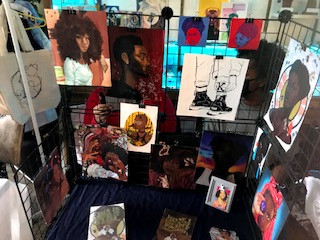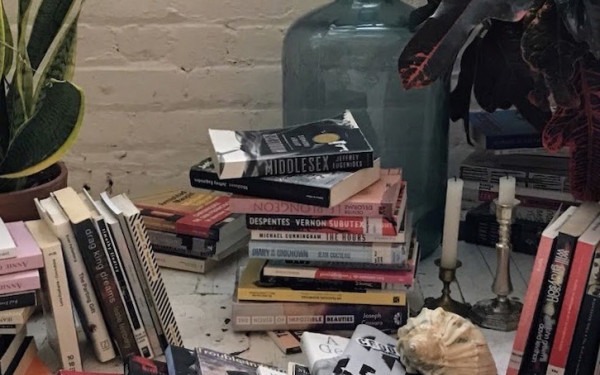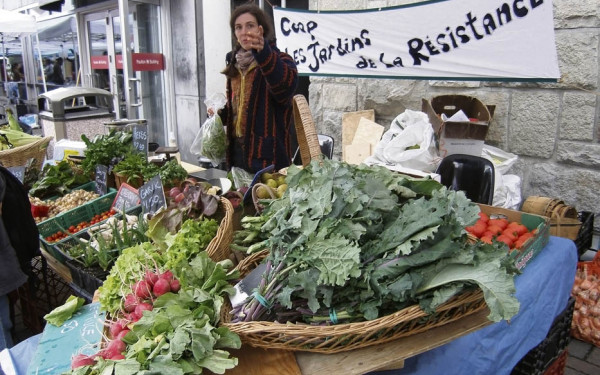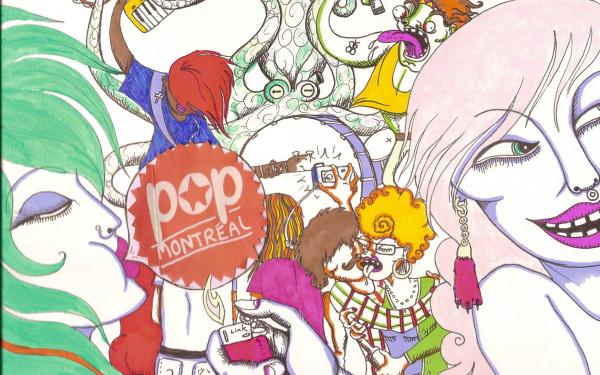Queer Speak en Français, a solo initiative to encourage the queering of the French language
Pervers/Cité’s queer, trans, and non-binary festival is underway with an array of radical events
Pervers/Cité’s summer festival started on Thursday, Aug. 19. If you’ve missed the first few events, don’t worry! Online and in-person events will be happening until Sept. 12, and you can access the complete list of events on their website.
Pervers/Cité gets its name in part from the history of the French word for Pride, Fiereté. More specifically, how it used to be called Divers/Cité, and in part from its fundamental values:
“We are an anti-corporate, alternative Pride,” said Ray Resvick, a current member of Pervers/Cité. “Essentially a perversion of the corporatized, pink-washed Pride.”
On Aug. 23, one of the festival’s events–Queer Speak en Français–took place over Zoom. It was co-hosted by Carlos Soriano, a member of Pervers/Cité, and Jessica Valmé, the founder of Queer Speak en Français.
Valmé teaches French to people from all around the world, ranging from couples or individuals who want to learn a second language to academics, entrepreneurs, and executives who need to learn French professionally.
She started Queer Speak Dating en Français during the winter in order to create a community while still in lockdown, at a time where many suffered from social deprivation. She also wanted people to have fun while practicing their French with people like them and to potentially form links with queer people around the world.

Valmé got the idea to start this initiative through a student of hers back in January, who said it would be fun to practice speaking French with other queer folks.
She has since also been inspired by other students, one of which who explained to her that learning French as a genderfluid person has been very taxing to their body, as they constantly have to choose between feminine and masculine word endings.
During Queer Speak en Français, participants were split into Zoom breakout rooms, where they engaged with fun icebreakers. Speakers ranged from extreme beginners to fluent veterans and everyone helped each other out.
Once everyone got acquainted, they played word games in teams of two, with bonus points given to creative answers.
Soriano uses they/them pronouns in English and tries to use iel in French as much as they can. Iel is supposed to be a gender neutral neopronoun. However, Soriano admitted they find it very difficult to turn complicated adjectives and nouns gender neutral, as there is no official rule to do so—l’Académie Française actually prohibits it.
These gender neutral words are near-impossible to pronounce, as writing them requires the use of periods. For example, to turn the word "student" gender neutral in French, one would spell it "étudiant.e."
“It is important for the festival to help create these spaces where people can share their knowledge or even test out new ways of reaching out and doing the work.” — Carlos Soriano
Valmé joked that many queer folks mixed and matched the grammatical gender of words just for fun and because it is often the only way to avoid systematically misgendering themselves or others.
Soriano moved to Montreal eight years ago and was disappointed in how Pride was portrayed here “as a superficial Capitalist parade.”
“I noticed the Village only [had] one agonizing library at the time, and that most activities involved only white culture,” they elaborated. “I was disappointed [by] the gay freedom I had immigrated to experience. But then I found Pervers/Cité. It was an awakening.”
Soriano explained how Valmé was a frequent collaborator with Pervers/Cité and how her work is important because it is a BIPOC-created project that brings together people with different backgrounds.
“It is important for the festival to help create these spaces where people can share their knowledge or even test out new ways of reaching out and doing the work,” they said.
Back in May, Valmé started an Instagram account for her initiative under the name of Queer Speak Dating en Français (@queerfrenchclass). She posts fun facts concerning the French language, some of which are to help people find gender neutral words to describe non-binary people.

Gender neutral words may be rare in French, but they do exist! For example, “fréquentation” can be used as a gender neutral word for “significant other.” The word itself is grammatically feminine but using it in a sentence keeps the noun neutral. It can thus be used to describe someone of any gender identity.
Valmé took a temporary break from hosting these classes during the summer, but Aug. 23 was the first out of many to come during the Fall 2021 semester.
Keep an eye on Pervers/Cité’s schedule as well as on Queer Speak Dating en Français’s Instagram to not miss any upcoming events!
If this doesn’t sound like your cup of tea, plenty other Pervers/Cité events are sure to interest you. Resvick recently organized the Art Market, where local trans and non-binary artists—mostly BIPOC—sold clothing, art prints, jewlery, and much more.
Artists also donated some of their art to a raffle, with all proceeds going towards the costs of running the festival as well as their BIPOC honorarium.
Plenty more events will be happening both virtually and in-person around Montreal, so be sure to check Pervers/Cité’s website and Facebook for more details.


_600_832_s.png)


1__600_375_90_s_c1.jpg)

